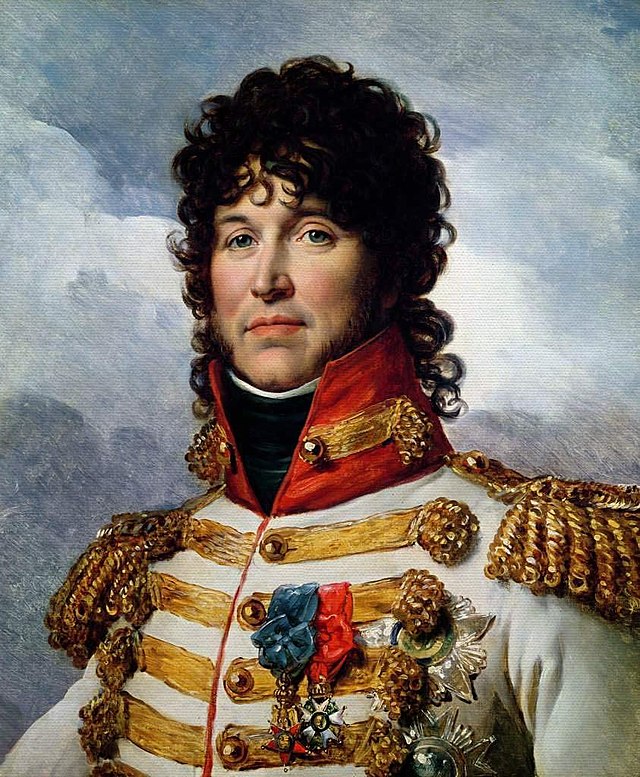From Innkeeper to King
The rise of Joachim Murat, an example of social redemption in the Napoleonic reign

Portrait of Joachim Murat in uniform - Wikicommons
With the rise to power of Napoleon and the spread of the ideas of the French Revolution, many things changed in Europe. Among these changes, noble privileges fell into ruin, particularly in public and military positions, opening the door for common people; now finally free to pursue careers in administration and the military based on merit.
One of the most notable stories is that of Gioacchino Murat (1767 - 1815). The youngest son of a humble innkeeper couple, the young Gioacchino had little to offer in terms of prospects. Initially directed toward a religious life, he, being fond of women, gambling (which led him into debt), and a luxurious lifestyle, found himself in trouble with the law. To escape his father's reprimands, he chose the only other possible life for him: the military, enlisting in 1787, expelled for insubordination in 1789, and then reinstated in 1791. Murat quickly distinguished himself with his military skills, joining King Louis XVI's guard, only to leave due to his sympathy for the Jacobins and his anti-monarchical views.
After denouncing his former captain, Murat gained the favor of the revolutionaries and began serving Napoleon in 1795, who, noticing Murat's abilities, took him on as a trusted man. In no time, thanks to his soldierly skills and the courage he demonstrated in various Napoleonic battles (the Battle of Aboukir, Bassano, Moscow, Austerlitz...), Murat became commander of the First Consul's guard (1799) and later became the First Marshal of the Empire in 1804, the highest position after Napoleon himself (Murat was related to Napoleon through his marriage to his sister, Carolina). However, Murat's social rise was not yet complete. In 1808, Napoleon appointed him King of Naples as part of his plan for a Europe under his and his family's command. Among his first acts of governance were granting amnesty to deserters and providing subsidies for retired soldiers. He died laughing in front of the firing squad after losing the war to reclaim the throne in 1815.
Alexandre Dumas, edited by Giovanna Arese, Murat, Sellerio, 2005
2025-09-16
Salvatore Ciccarello
